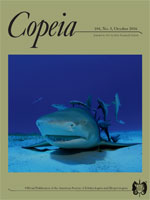Fever is an evolutionarily conserved and effective organismal response used to reduce infection burden. Although ectotherms are unable to induce a fever endogenously because they only produce negligible heat from their metabolism, they can increase their body temperature in response to infection by selecting warm microclimates (“behavioral fever”). For amphibians, behavioral fever is hypothesized to be critical in their defense against pathogens because many amphibian immune parameters are more effective at warm temperatures. We explored this topic using the pathogenic amphibian chytrid fungus (Batrachochytrium dendrobatidis; “Bd”), a fungal pathogen implicated in the worldwide amphibian declines. Behavioral fever in amphibians should be an effective defense against Bd because fungal growth is temperature dependent and does not survive above 30°C. We conducted a laboratory experiment in which we allowed Bd-infected and sham inoculated metamorphic American toads (Anaxyrus americanus) to behaviorally thermoregulate. During the experiment, we recorded the body temperature of each toad and also determined their Bd infection intensity. Bd-infected toads behaviorally increased their body temperatures through the course of an infection compared to sham inoculated toads, which did not change their body temperatures. In addition, toads with higher initial Bd infection intensities (measured prior to the start of the thermoregulation experiment) had higher average body temperatures compared to the body temperature of toads with lower infection intensities. Collectively, these findings build upon our understanding of the relationship between temperature and disease in the amphibian-Bd system and offer hope that amphibians might be able to induce behavioral fevers to clear their Bd infections in nature.
How to translate text using browser tools
15 September 2016
Thermoregulatory Behavior of Anaxyrus americanus in Response to Infection with Batrachochytrium dendrobatidis
Stephanie A. Karavlan,
Matthew D. Venesky
ACCESS THE FULL ARTICLE





